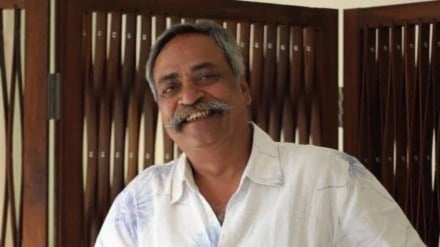When Piyush Pandey walked into Ogilvy & Mather’s Mumbai office in 1982, advertising was still speaking a borrowed language, essentially polished, urbane, and predominantly English. Four decades later, when he stepped down as Executive Chairman, Indian advertising was speaking Hindi, and more importantly, the idiom of India itself. Pandey, who passed away on 23 October 2025, at the age of 70, was the storyteller who made brands sound Indian without losing their soul.
Cricket to the creative boardroom
Born in Jaipur in 1955, Pandey grew up in a bustling household of nine siblings, among them singer-actor Ila Arun and filmmaker Prasoon Pandey. Before advertising, he was a cricketer, playing Ranji Trophy for Rajasthan and captaining its Under-22 side. The long train journeys, chai-stall conversations, and exposure to India’s languages and mannerisms would later colour his copy with authenticity.
After a brief stint as a tea taster, Pandey joined Ogilvy in client servicing. Six years later, he moved to the creative and changed the course of Indian advertising. By 1992, he was National Creative Director; in 2018, he became Chief Creative Officer Worldwide, the first Indian to hold that position.
His time at Ogilvy was defined as much by mentorship as by milestones. Colleagues recall that he never let hierarchy overshadow an idea — “If it’s good, it’s good,” he would say, scribbling concepts on the back of matchboxes or napkins. His desk was rarely empty, often filled with young copywriters, filmmakers, and planners looking for feedback or a laugh. Pandey believed creativity could not thrive in fear. “When people laugh, they listen better,” he often remarked, a belief that shaped Ogilvy’s famously collaborative culture.
The campaigns that became culture
Fevicol’s “Bus” film, Cadbury Dairy Milk’s Kuch Khaas Hai, Asian Paints’ Har Ghar Kuch Kehta Hai, Vodafone’s pug, all bore Pandey’s unmistakable signature: humour rooted in humanity. His copy was more about selling the emotion than selling a glue, chocolate or telecom services.
He wrote the lyrics for Mile Sur Mera Tumhara, a national integration anthem that aired every Independence Day. Later, his slogan “Ab ki baar, Modi sarkar” showed how advertising could shape political imagination. And his line Do Boond Zindagi Ki for India’s Pulse Polio drive helped save lives. Few creatives have written both a national jingle and a public-health message that changed history.
Under Pandey, Ogilvy India became the country’s most awarded agency for 12 straight years, collecting more than a thousand trophies, from Cannes Lions to CLIOs. In 2018, he and Prasoon Pandey became the first Asians to receive the Lion of St. Mark, Cannes’ lifetime achievement honour. He was also the first Asian jury president at Cannes (2004) and the first Indian adman to receive the Padma Shri (2016).
Pandey often said great ideas come “from the street, from life, from listening.” He believed ads should touch hearts before minds. His genius lay not in complexity but in empathy. “An iconic ad isn’t written,” he would say. “You just write the best thing you can — when people fall in love with it, it becomes iconic.”
Legacy beyond awards
Even after stepping down in 2023, Pandey stayed on as Chief Advisor, mentoring the next generation. Behind his famous walrus moustache and booming laugh was a teacher who saw lessons in everyone, from carpenters to chaiwalas. When the curtains fell on his 41-year journey at Ogilvy, India lost a voice that taught its brands to speak their own tongue.
